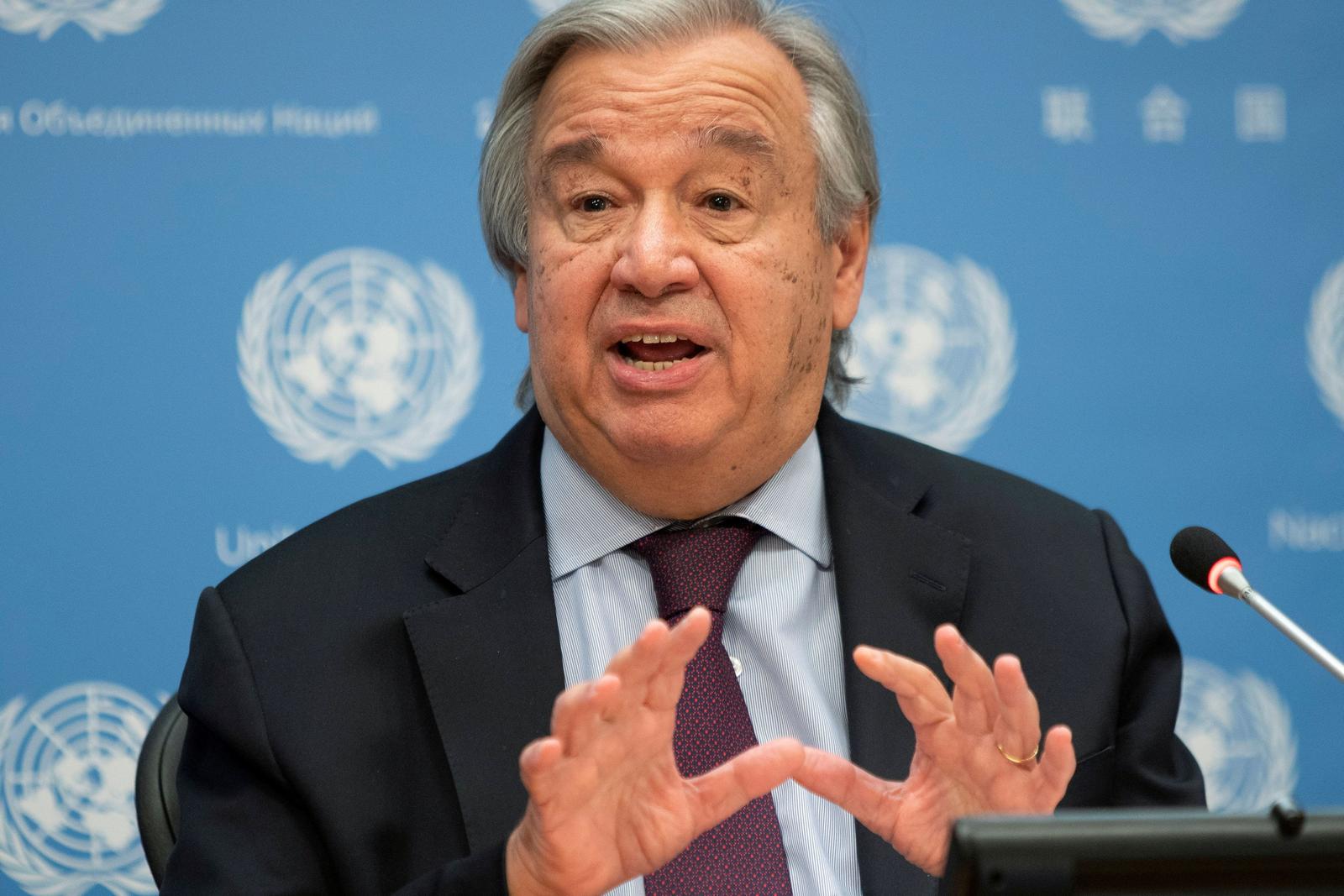LONDON/BRUSSELS -- U.N. Secretary-General Antonio Guterres called on every country to declare a “climate emergency” on Saturday, as world leaders marking the fifth anniversary of the Paris climate accord made mostly incremental pledges relative to the scale of the crisis.
Guterres made his call at a summit aimed at building momentum behind the Paris deal, buoyed in recent months by renewed commitment from China and the prospect of U.S. President-elect Joe Biden bringing the United States back into the pact.
Nevertheless, the dozens of leaders who spoke mostly offered tweaks to existing commitments or promises of bolder moves before crucial talks in Glasgow in late 2021, rather than breakthrough new policies to hasten the end of fossil fuels.
“Can anybody still deny that we are facing a dramatic emergency?” Guterres, a former Portuguese prime minister who has made climate change his signature issue, said via video.
“That is why today, I call on all leaders worldwide to declare a State of Climate Emergency in their countries until carbon neutrality is reached.”
With the impacts of climate change increasingly stark since the Paris deal was struck - ranging from wildfires in Australia and California to collapsing ice sheets - popular pressure has grown on leaders to listen to warnings from scientists.
Britain, co-hosting the summit, made one of the clearest new commitments, announcing late on Friday it would stop direct government support for overseas fossil fuel projects.
Campaigners hailed the move for putting pressure on other G7 economies to restrict support for oil and gas companies, reeling from the impact of COVID-19.
Pledges to back Paris from countries such as India, Germany and France were welcomed less in terms of substance and more for keeping alive hopes of faster action to meet the monumental challenge of halving global emissions by 2030 in line with the Paris deal.
Disappointment on coal
Chinese President Xi Jinping, who surprised many in September when he announced the world’s biggest producer of climate-warming emissions would become carbon neutral by 2060, unveiled targets to speed the expansion of wind and solar power.
“China always honours its commitments,” Xi said.
But China showed no signs of bowing to calls from Guterres and campaigners to wind down finance for new coal-fired power plants, a major source of emissions.
Japan and South Korea, which both pledged in October to reach net-zero emissions by 2050, likewise made no commitments on coal finance - though they did pledge to submit more ambitious emissions targets under the Paris accord.
Pakistan’s Prime Minister Imran Khan, by contrast, drew praise for saying the country “will not have any more power based on coal”. It was not immediately clear what the pledge would mean for Pakistan’s existing plans to build coal plants under a deal with China.
Young campaigners pointed to the gulf between government action and the changes needed to deliver on the Paris goal of holding the rise in average global temperatures to “well below” 2 degrees Celsius, and if possible 1.5C.
“It is the melting of permafrost; forest fires that hit closer to the home of the climate crisis deniers; droughts that ransack living beings of their resources; floods that reminded many of us that we have no escape,” Selina Neirok Leem, a campaigner from the Marshall Islands, told the summit.
Major emitters such as Australia and Brazil did not make ambitious enough pledges to qualify to speak, diplomats said. Several state governors spoke from the United States, which left the Paris deal under outgoing President Donald Trump.
'Turn the corner'
Guterres said economic recovery packages launched in the wake of the coronavirus pandemic should represent an opportunity to accelerate the transition to a low-carbon future - but said G20 countries had so far spent 50% more of their stimulus on sectors linked to fossil fuels than on low-carbon energy.
“This is unacceptable,” Guterres said. “The trillions of dollars needed for COVID recovery is money that we are borrowing from future generations.”
The European Union, whose plan to spend 30% of its 1.8-trillion-euro budget and COVID-19 recovery fund on climate action, boosted its own 2030 climate pledge on Friday, aiming to cut emissions at least 55% by 2030, from 1990 levels.
British Prime Minister Boris Johnson urged the world to cooperate to reverse the process by which humanity has been quilting the planet in “a toxic tea cosy” of greenhouse gases.
“And at the same time, we can create hundreds of thousands of jobs, millions of jobs, across the planet as we collectively recover from coronavirus,” Johnson said.
Investors and businesses also underscored their support for a low-carbon transition.
“We call on companies and governments around the world to do all we can to make 2021 the year we turn the corner for good,” Apple Inc Chief Executive Tim Cook told the summit.





















































